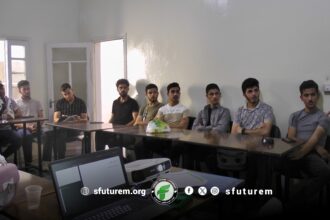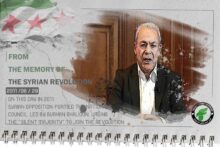Media Planning and Its Role in Crisis Management

Objective:
The objective of this research paper is to explore the role of media planning in managing crises and disasters. Media planning contributes to assisting the agencies that implement it to optimally handle crises and disasters and mitigate their negative impacts by guiding the public through all phases of the crisis or disaster. This is done by using scientific methods and tools, as well as precise data and statistics, to analyze the situation objectively, understand prevailing conditions and influential trends, and employ them in managing the crisis or disaster to reduce its negative effects.
Paper Outline:
- Introduction
- Elements of Media Planning
- Concept and Definition of Crisis
- Media Planning and Crisis Management
- Conclusion
- References
Introduction:
Planning is a distinguishing feature of various organizations, with their diverse types and goals. Every nation striving for development relies on planning as the only guarantee for the optimal use of different resources in a scientific manner to achieve its goals within a specified timeframe.
Media planning, in this context, has become a necessity, imposed by the advancements in media technologies, given the significant role these tools play in the lives of different institutions and societies. This is especially true as their role and capacity in disseminating information on a broad scale and at the highest speed have grown. This role becomes more apparent during crises, prompting researchers to focus on the importance of media planning as one of the foundations for crisis management throughout the various stages of crisis evolution, starting from the preparation phase for potential crises and leading to the development of plans that align with the different stages of the crisis and adapt to its nature.
The differing social contexts, political frameworks, and prevailing media systems make the role of media in this domain vary from one society to another. Consequently, the status of media planning also differs. However, media planning remains an essential tool for confronting and managing crises.
Elements of Media Planning:
Successful media planning requires several key elements, the most important of which include:
- Comprehensiveness: This means covering various developmental fields, different audience segments, and all elements of communication.
- Integration: This refers to the integration between media plans and programs and the practical developmental communication programs.
- Continuity: Ensuring that the plan forms a cohesive whole, guaranteeing the continued achievement of the desired objectives. Each stage is connected to the previous one, meaning the preparation and design phase is not separate from the planning, implementation, and evaluation phases.
- Flexibility: This refers to the ability to adapt and respond to any emergency, confronting unexpected circumstances.
- Cost-effectiveness: Based on the unit cost for using different media.
It is clear from the above that media planning aims to develop and implement pre-prepared plans to deal with unexpected situations and maintain a constant state of readiness to manage potential crises. Media planning can be considered the lifeline for crisis management.
Concept and Definition of Crisis:
The concept of crisis is one of those that is difficult to define, given the comprehensive nature of its scope and its wide-ranging application, encompassing various forms of negative human relationships at all levels of interaction. The concept of crisis is typically associated with a sense of danger, tension, and the importance of time needed to make decisions and take actions to address it.
The most significant definitions of crisis include:
- A crisis is a “state of tension and a turning point requiring a decision that results in new situations, whether positive or negative, affecting various related entities” [1].
- A crisis signifies that the elements of conflict in a relationship have reached a stage threatening to bring about a radical change in this relationship, such as a shift from peace to war, the disintegration of alliances, or the breakdown of relations in international organizations [2].
Reviewing these definitions, the main features of crises can be summarized as follows:
- The presence of imbalance and tension in relationships.
- The need to make decisions.
- Difficulty in accurately predicting future events.
- A turning point for better or worse.
Media Planning and Crisis Management:
By media planning, we mean the preparation of plans specific to the media sector to manage various crises. It should be noted that these plans vary depending on the nature and type of crisis on one hand and the responsibilities of the entity or organization facing the crisis on the other. Despite the differences between media plans, there are basic common elements agreed upon by researchers and experts that should form the foundation of all media plans when confronting crises. These elements include:
- Identifying potential risks and crises, defining objectives, then determining the available means and resources, understanding the nature and type of crisis and the audience, preparing media messages directed at the audience, and training on the implementation of the media plan for crisis management [3].
- The process of media planning for crisis management is based on several foundations, including organizational goals, the general policy of the organization, prevailing organizational values, the availability of crisis management experts, the nature of the prevailing organizational culture, as well as the available resources and time [4].
The process of crisis management planning faces many challenges that limit its efficiency, the most significant being:
- The limited and unpredictable time available to manage the crisis, requiring urgent actions to contain the situation.
- The anxiety experienced by the crisis audience, which increases the risk and psychological and social impact of the crisis.
- Competition in covering the crisis may lead to errors, creating additional pressure, along with other obstacles such as limited available resources [5], lack of expertise due to the absence of competent crisis management teams, and insufficient information necessary for crisis prediction.
The importance of media planning in various stages of crisis management cannot be overstated. Organizations have come to understand that planning is a modern method contributing significantly to preventing crises or reducing their severe consequences. This has made media planning essential in various stages of crisis management, beginning from the pre-crisis stage. We will clarify this through the following points:
- Importance of Media Communication Planning in the Pre-Crisis Stage: Planning is one of the pillars of crisis management philosophy. It includes pre-determined measures set before the crisis occurs. Regester and Larkin propose six steps to prevent crises:
- Preparing a crisis guide for expected crises, drawing from the experiences of previous organizations.
- Establishing policies aimed at avoiding crises, which can be achieved through planning.
- Developing strategies and operational plans for dealing with anticipated crises to minimize their risks to the organization.
- Identifying the audiences likely to be affected by the crisis and the means to communicate with them swiftly.
- Testing the plans periodically to make the necessary adjustments according to the circumstances.
- Media Communication Planning for the Pre-Crisis Stage:
- Preparing media plans in light of the general strategies for crisis management.
- Media planning includes three phases (pre-crisis, during the crisis, and post-crisis), each with its principles, foundations, objectives, and methods of monitoring and evaluation, ensuring harmony and integration across the different stages of crisis management.
- Defining target audiences and persuasive methods for each within the crisis management communication strategy.
- Ensuring the media plan is accurate, comprehensive, and flexible, with clear methods and objectives based on available resources.
- Maintaining a positive image of the organization at all stages of crisis management to preserve its reputation.
- Dealing with the media honestly and objectively without exaggerating facts and choosing the right time to provide the media with new information, so as not to affect the course of crisis management and the organization’s image.
- Consulting with experts to design, implement, and monitor media plans for crisis management to benefit from their experiences.
- Equipping the crisis management media center with all necessary modern equipment and technologies, training spokespersons with media outlets during crises [6].
- Preparing Detailed Plans and Programs in Advance to Support the Crisis Management Team:
- Identifying potential members of the crisis management team based on experience and expertise in crisis management.
- Designing communication messages and target audiences that can be used to execute the crisis communication plan.
- Selecting representatives of the organization to deal with the media [7].
Conclusion:
Scientific and technological advancements have provided many media tools that can contribute to crisis management and mitigate their severe impacts. However, these tools cannot play an effective role without proper planning throughout the different stages of crisis management, using scientific methods and various tools to contain the crisis before it escalates. Media planning has become essential in this era of widespread crises, as it helps organizations efficiently and effectively handle crises, causing minimal damage to the organization and society.
Dr. Lamis Abo Assaf
Media Office
Research and Studies Department
Studies
Syrian Future Movement (SFM)
References:
[1] Fahd Ahmed Al-Shaalan, “Crisis Management,” 2002, p. 26.
[2] Ahmed Al-Mamari, “Media,” 1993, p. 26.
[3] Mohsen Ahmed Al-Khodeiri, “Crisis Management,” Cairo, Madbouly Library, 1990, p. 6.
[4] Na’amat Ahmed Khattab, “Labor Policies in Times of Crisis,” 1997, p. 2.
[5] Abdullah Hamad Al-Humaid, “Planning for Natural Disaster Management,” Master’s Thesis, 1987, p. 26.
[6] Saad Awda Al-Raddadi, “Security Planning for Emergency Missions and Operations,” Master’s Thesis, 1988, p. 12.
[7] Ayedh Bin Baniyah, “The Relationship Between Media and Awareness,” 2001, p. 33.






